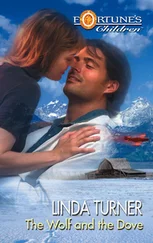After that first visit, I didn’t expect to hear from George Caldwell again, but he surprised me. Sort of. The next couple of months, he visited sporadically. Our encounters were mostly physical. He was a married man of standing in the community, and I was a drive thru: convenient, quick, fundamentally satisfying, but a pleasure he felt embarrassed for indulging.
Three months in, he began staying longer. Brief chats evolved into actual conversations. I found out about the man and his life, which revolved around a perpetually dissatisfied wife, a spoiled son who had grown into an unbearable adult, and an obvious, if muted, depression. He admired me. He envied me. He asked me to spend a weekend with him in Austin.
I said no.
At that point in my life, I wasn’t looking to train a sixty-three-year-old closet case. I’d come out in the late 70s, survived the 80s, and had spent the next twenty years with a quiet, though pleasant, alcoholic named Calvin, whose liver finally disintegrated the year after we’d retired to Galveston.
The other issue, which I found to be the more significant reason to avoid a weekend retreat with George, was the fact that ever since our first meeting, I’d spent far too much time thinking about him. In the days between George’s visits, I swung from whimsical notions of how we would spend our next meeting to outright fury every time he had to cancel. At the center of these fluctuating emotions was sadness. Or maybe melancholy was a better word. I understood the cliché, even as I lived it: hopelessly pining for a married man. I’d started loving him too quickly, and that was not a thing to be encouraged, considering our situation.
Closing my eyes against another view of the disconcerting bay, I turned from the window and stepped to the center of the room. When the doorbell rang, I flinched.
I couldn’t imagine who would be at the door. Maybe it was the real estate agent, though I doubted it. She’d agreed to swing by, “If I can.” Her disinterest was understandable.
No one wanted to live near the water now.
“It’s happening all along the coast,” I call to George.
On the evening news a video clip of a little girl with a purple butterfly barrette in her blonde hair fills the screen. The child is dancing the same tribal dance I had witnessed only a few days before. The video comes from Holly Beach, Louisiana. An anchorwoman with silky black hair appears following the clip, and she says that more than a dozen incidents have been witnessed in the past week. She smiles and expresses her certainty that “Boogie Fever” is just the latest cultural meme, no different from Planking or the Mannequin Challenge.
George walks through the room with a glass of scotch, the flavor of which I’d never enjoyed until I tasted it on his tongue. He is naked, as is usually the case when he is home. A devotion to nudity is one of the many lifestyle changes George has adopted since leaving his wife. His body is burly and well shaped, having far more to do with genetics than any devotion to exercise. We go to the gym three days a week, and while I earn sweat on the treadmill and weights, George frequently chooses to lounge in the steam room until I am finished.
“ What’s happening along the gulf?” he asks, taking a moment to pause in front of the window to gaze over the nighttime bay.
“This dancing thing,” I say. “Like that woman outside my office.”
“People will do anything for attention,” he says. “Why is something like that even on the news? The economy is going to shit again; protests and riots are springing up every other day; and two nights ago, about thirty people walked to a beach in Bermuda and vanished. Any one of those things strikes me as considerably more relevant than a bunch of idiots wiggling their asses for a camera.”
“Wait, Bermuda?”
He sips his scotch. “These people–police think it’s around twenty or thirty of them–just got up in the middle of the night, walked out of their homes, and disappeared. Loved ones reported a bunch of missing persons, and the authorities tracked several of them to a cove. They found footprints and some personal items, but no people. Bermuda isn’t a big island. I went there on business a few times. You can’t really hide there.”
“They could have chartered a boat.”
“Not likely,” George says. “The missing persons weren’t part of a social club. In fact, two of them were just visiting the island. They had no connections to anyone there.”
I don’t have a response to that.
“Anyway,” he says, “I’m going to bed. I have to meet the lawyers in the morning. Time to see what else Eugie thinks she’s entitled to for having me pay her bills for thirty years.”
George doesn’t sound bitter. He sounds exhausted. The divorce proceedings have dragged on far longer than he’d expected. He’d made it clear he wasn’t going to put up much of a fight. He accepts the divorce as his fault, his problem, despite years of unhappiness on both sides of that bed. He just wants out, but Eugie’s lawyers are gouging deep, too deep.
“You go on in,” I say. “It’s still early.”
“I don’t think so,” George says, crossing to the sofa where I sit. “You are vital to my reason for going to bed early.”
He bends over, carefully balancing his glass so his whisky doesn’t slosh, and he kisses me hard.
I opened the door of the apartment to find a middle-aged man standing in the hallway. My throat grew tight and my breath lodged in the constriction. A chill blossomed on my neck and then rapidly vanished as I reconciled the man before me with the man I’d momentarily imagined him to be.
Barry Caldwell resembled his father so much that if the younger man were to slap a gray wig on his head, the two could have passed for twins, as long as you didn’t look below the neck. Whereas George’s physique had remained well proportioned and firm, Barry’s didn’t stand a chance against his indulgences and his sloth. I found it a shame that such a handsome face should rest on a body that might have been sketched by Dr. Seuss.
According to George’s description of the man, they were in all other ways quite different. Our awkward meeting at the reading of George’s will did nothing but support this notion.
“You’re here,” Barry said. His voice projected annoyance and indignation, as if I were the one intruding in his home. “We need to talk about my dad.”
My shoe sinks in the sand, sending me off balance and into George’s thick shoulder. He laughs and wraps an arm around me for support. He gently knocks the side of his head into mine, a display of affection I always found strange.
“After they found that whatever-it-is down here, I got curious,” he says. “Weird fucking things.”
“You mean the carcass that washed up last week?”
“Globsters,” George says. “They call them globsters on the news. I don’t think you can call them carcasses. No one’s sure they’re actually animals, at least not whole animals. They’re like giant tongues or something. No eyes or mouths, just large chunks of smooth meat.”
“What did it look like up close?” I ask, feeling a twinge of jealousy that he’s found adventure on his own. We’d waited a long time to be together, really together; I want to share important moments. Every one of them.
“Like I said, just a wad of pale blue meat, about the size of a dolphin. Gulls swarmed the thing. Apparently, they find globster extremely tasty. I watched for a bit, but then this group of people in blue polo shirts showed up with tackle boxes. I guess they were with Fish and Wildlife or something. They put on surgical masks and did their best to shoo away the gulls so they could get a better look at the thing.”
Читать дальше













